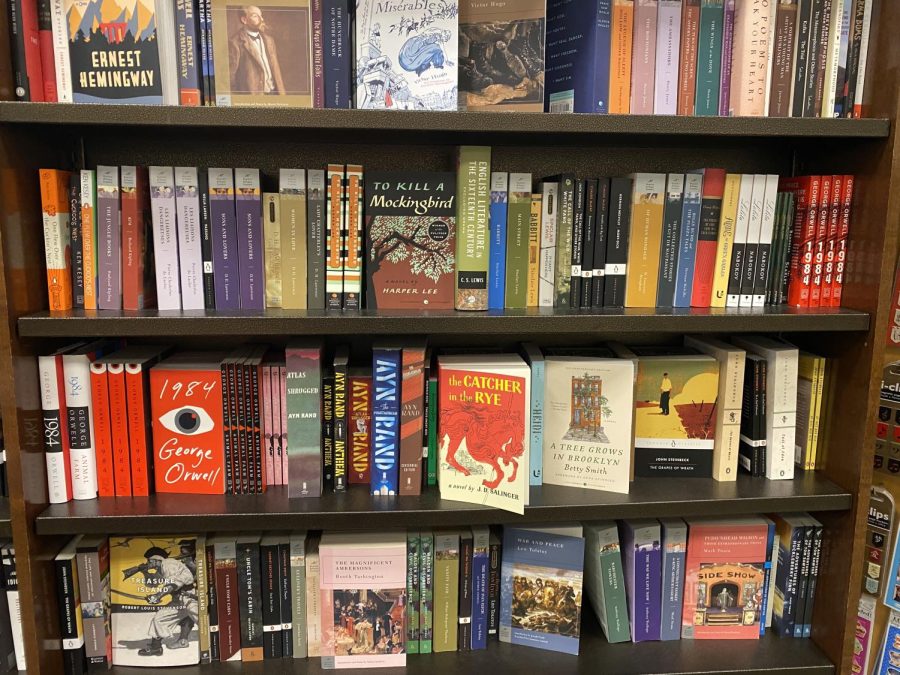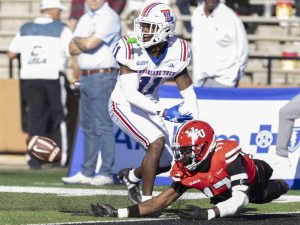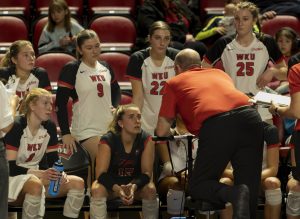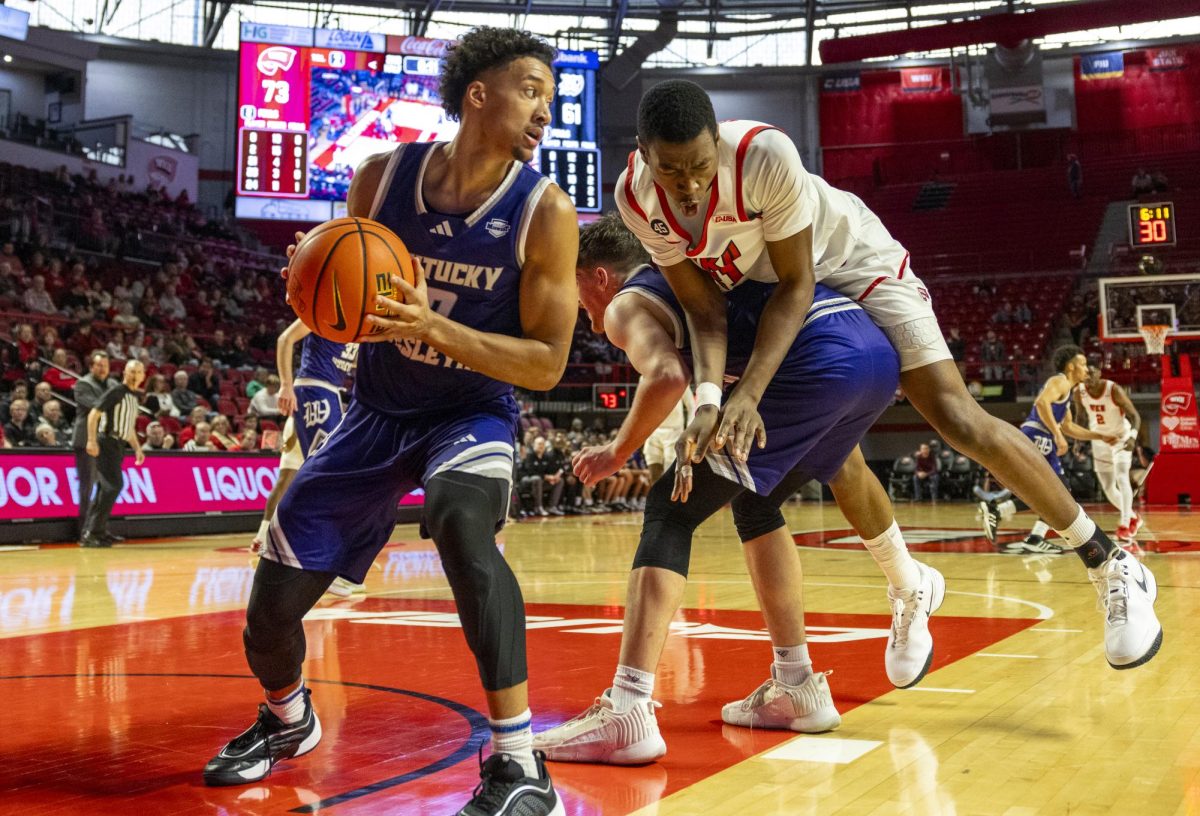‘An invaluable way to learn about history’: WKU Libraries discusses banned books
September 29, 2022
Ernest Hemingway, Kurt Vonnegut and James Baldwin. What do these authors have in common? Their most famous works have all faced scrutiny throughout history, leading to book burnings and library bans.
Hemingway’s “The Sun Also Rises” was banned in Boston, Massachusetts, in 1930, Ireland in 1953 and Riverside and San Jose, California, in 1960. In 1933, copies of the book were burned in Nazi bonfires in Germany.
Vonnegut’s “Slaughterhouse-Five” faced a number of challenges due to its portrayal of violence, sexual scenes and religious matters. It was burned in Drake, North Dakota, in 1973.
Baldwin’s “Go Tell It on the Mountain” was challenged in Hudson Falls, New York, in 1994 because of its themes of rape, masturbation, violence and degradation of women. It was also challenged in Prince William County, Virginia, in 1988 because it is “rife with profanity and explicit sex,” according to the American Library Association.
Last week, libraries – including WKU Libraries – across the country celebrated “Banned Books Week.”
“Libraries celebrate banned books because libraries oppose censorship and promote intellectual freedom,” Laura DeLancey, chair of the department of Library Services, said via email. “This is especially true at a university library: universities are places where you should be exposed to new ideas!”
Between Jan. 1 and Aug. 31, 2022, the ALA documented 681 attempts to ban or restrict library resources. In total, 1,651 unique titles were targeted.
In recent years, many young adult books that feature LGBTQ+ characters have been banned, the New York Times reported.
Last year, titles such as “This Book is Gay” by Juno Dawson were restricted “for providing sexual education and LGBTQIA+ content.” “The Hate U Give” by Angie Thomas was “Banned and challenged for profanity, violence, and it was thought to promote an anti- police message and indoctrination of a social agenda,” according to the ALA.
“A lot of book challenges come from parents concerned about what their child is reading,” DeLancey said. “I absolutely believe parents should be involved in helping their kids select age-appropriate materials. This is going to mean something different for each family and each child.”
Despite this, most parents are opposed to book bans, according to a poll by ALA. After hearing arguments on both sides, parents oppose efforts to remove books from school libraries by a 22-point margin – 61% oppose, 39% support the banning of books.
According to the poll, voters across the political spectrum have a “keen sense of the importance of public libraries” – 95% of Democrats, 78% of independents, 87% of Republicans – and school libraries – 96% of Democrats, 85% of independents, 91% of Republicans.
“Most challenges occur in public and school libraries, and my colleagues at those organizations are on the front lines ensuring that books representing a wide range of perspectives and experiences remain available for the people who want and need them,” DeLancey said.
DeLancey said that bans of popular books such as “Captain Underpants” by Dav Pilkey or “The Hunger Games” by Suzanne Collins can cause kids to lose out on a chance to “develop a life-long love of reading and discovery.”
“Classics get banned too, like “Beloved” by Toni Morrison and “To Kill A Mockingbird” by Harper Lee,” DeLancey said. “Novels like these are an invaluable way to learn about history.”
Co-Editor-in-Chief Debra Murray can be reached at [email protected]. Follow her on Twitter @debramurrayy.












